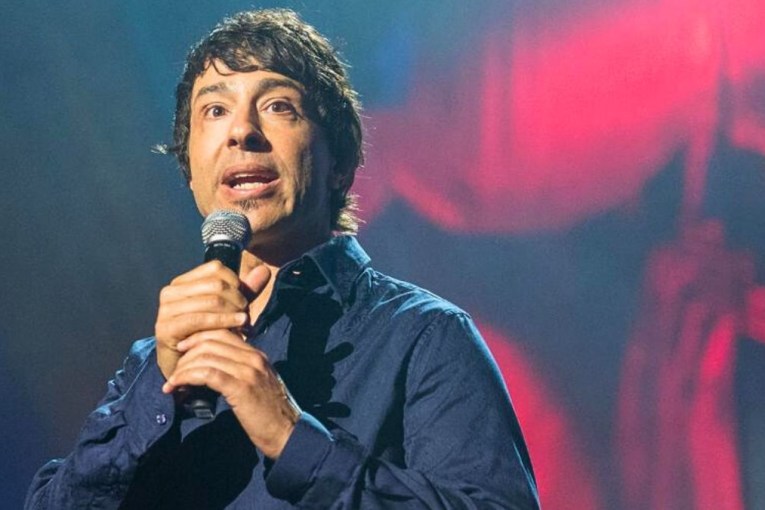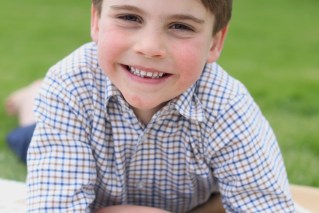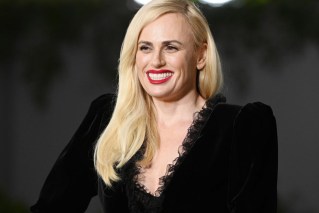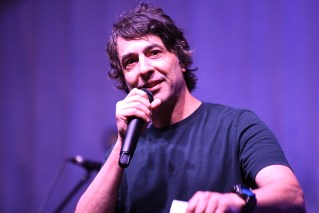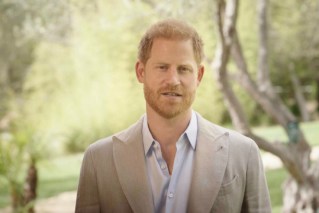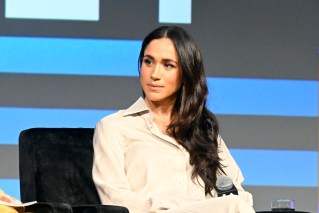Dr G Yunupingu, renowned Indigenous musician, to be farewelled at state memorial in Darwin
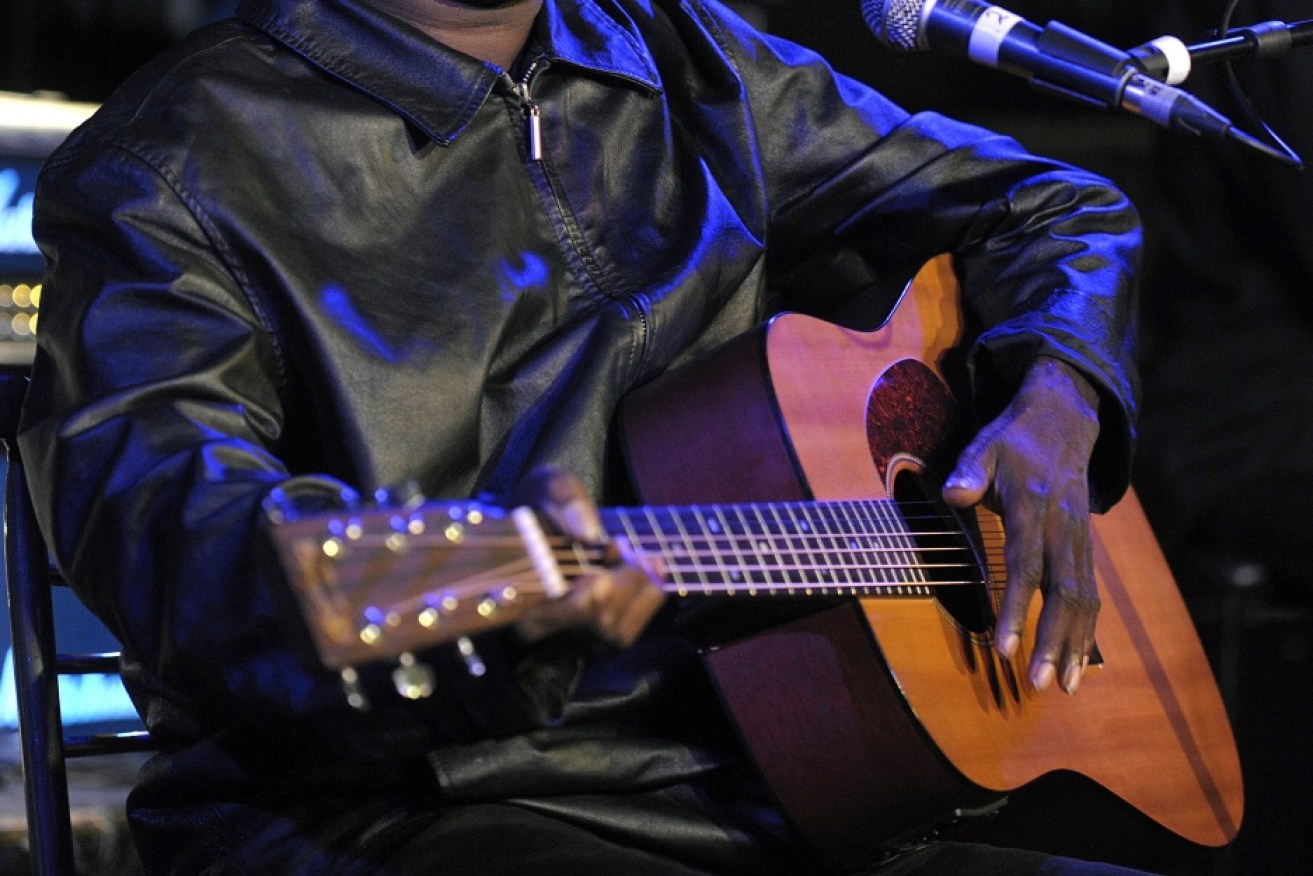
Dr Yunupingu made his way from a tiny remote community in Arnhem Land to global fame and acclaim. Photo: Getty
One of Australia’s most famous Aboriginal musicians will be farewelled at a state memorial service in Darwin today.
Dr G Yunupingu died in July at age 46 following a near-lifelong struggle with liver and kidney disease, after contracting hepatitis as a child.
Blind from birth, the singer — from the remote community of Galiwin’ku on Elcho Island, 500 kilometres east of Darwin — shot to stardom in 2008, winning an ARIA Award for his namesake album.
The album hit triple platinum in Australia, silver in the UK and charted in multiple countries worldwide, selling more than half a million copies.
Northern Territory Chief Minister Michael Gunner will deliver one of five eulogies at the service, and the ABC understands Jessica Mauboy is one of more than a dozen musicians and dance groups who will perform in tribute to Dr G Yunupingu.
The memorial service in Darwin will begin at 10:45am (ACST) and will be held at the 1,200-seat auditorium at the Darwin Convention Centre.
Singer performed for Obama, the Queen
Dr G Yunupingu, a Yolngu man from the Gumatj clan, had his first guitar by the age of six, which he learned to play upside down because he was left-handed.
In his mid-teens he joined the band Yothu Yindi under the guidance of lead singer Mr Yunupingu, and later went on to play with the Saltwater Band, before being persuaded to go solo.
The singer played with Sting in Paris, and performed for former US president Barack Obama, and Crown Prince Frederik and Princess Mary of Denmark.
In 2011 he became seriously ill and returned to Elcho Island, but he then travelled to perform at the Queen’s diamond jubilee concert in London in 2012.
‘He changed the world for us’
At the time of his death, Dr G Yunupingu was remembered by friends, family and colleagues as an extraordinarily talented and kind man.
“He was a shy, humble and wonderful young man, who turned out to have such a fantastic voice,” friend Vaughan Williams said.
“He was a musical genius who could do rock, gospel, soul. He could do it all.”
Yorta Yorta soprano and Dean of Indigenous performance at the Victorian College of the Arts, Deborah Cheetham, said Dr G Yunupingu’s music changed the landscape for Indigenous artists.

Dr G Yunupingu picked up his first guitar age 6. Photo: Supplied/ Sam Karanikos
“[He] ignited a fire for Aboriginal Australians that singing in language is so meaningful for us, a way of connecting with who we are, where we come from,” she said.
“Today the celebration of song in language is something that’s become the fabric of society. He changed that world for us.”
Ms Cheetham said it was difficult for many to accept Dr G Yunupingu had died so young.
“When a voice like that is silenced in the world it’s a kind of deafening silence that takes some time to get used to,” she said.
Midnight Oil frontman Peter Garrett said the singer was a “truly great musician”, while rapper Briggs said he changed people’s expectations of Indigenous music.
“He and I just got along, so making music together was second nature, especially with a talent like his which is so far beyond anything you’ve ever seen; you’re never going to get another talent like that,” he said.
Dr G Yunupingu chose to stop dialysis
Dr G Yunupingu’s death revived a national conversation about closing the gap between Indigenous and non-Indigenous health outcomes.
It was revealed that he chose to stop undergoing dialysis knowing that he would die.
“It seems increasingly clear that having missed dialysis for the longest time that he ever did, and actually having called people to say goodbye, that he was actually making a decision for himself — just as Kerry Packer did — to actually leave dialysis,” his doctor Paul Lawton said.
The kidney disease specialist said the burden of dialysis, which requires patients to be hooked up to machines three times a week for five hours per session, proved too much for the singer, just as it had for many other Australians.
“The extraordinary thing is not that patients struggle with it, but that some actually succeed,” Dr Lawton said.
“People talk about it as a nightmare, or a half-life being in purgatory, where they are physically alive, but not fully able to participate in life.”
Dr G Yunupingu’s musical collaborator, spokesman, and Skinnyfish Music producer, Michael Hohnen, said the singer had been hospitalised seven times over the past year after avoiding going to dialysis “because he hated it”.
“He had an enormous support team of family and doctors and an extended social group here and out bush,” Mr Hohnen said.
“But some people don’t like dialysis, and when he didn’t want to do dialysis he used to hide.”
Skinnyfish managing director Mark Grose said efforts to close the gap should be redoubled.
“We all need to be part of recognising that the Indigenous people that we are friends with, that we socialise with, that we work with, their life expectancy is not as great as mine as a non-Indigenous person,” he said.
“And I think all of us need to take some responsibility to help work towards better outcomes for Aboriginal people.”
-ABC
with Jane Bardon and Jano Gibson
